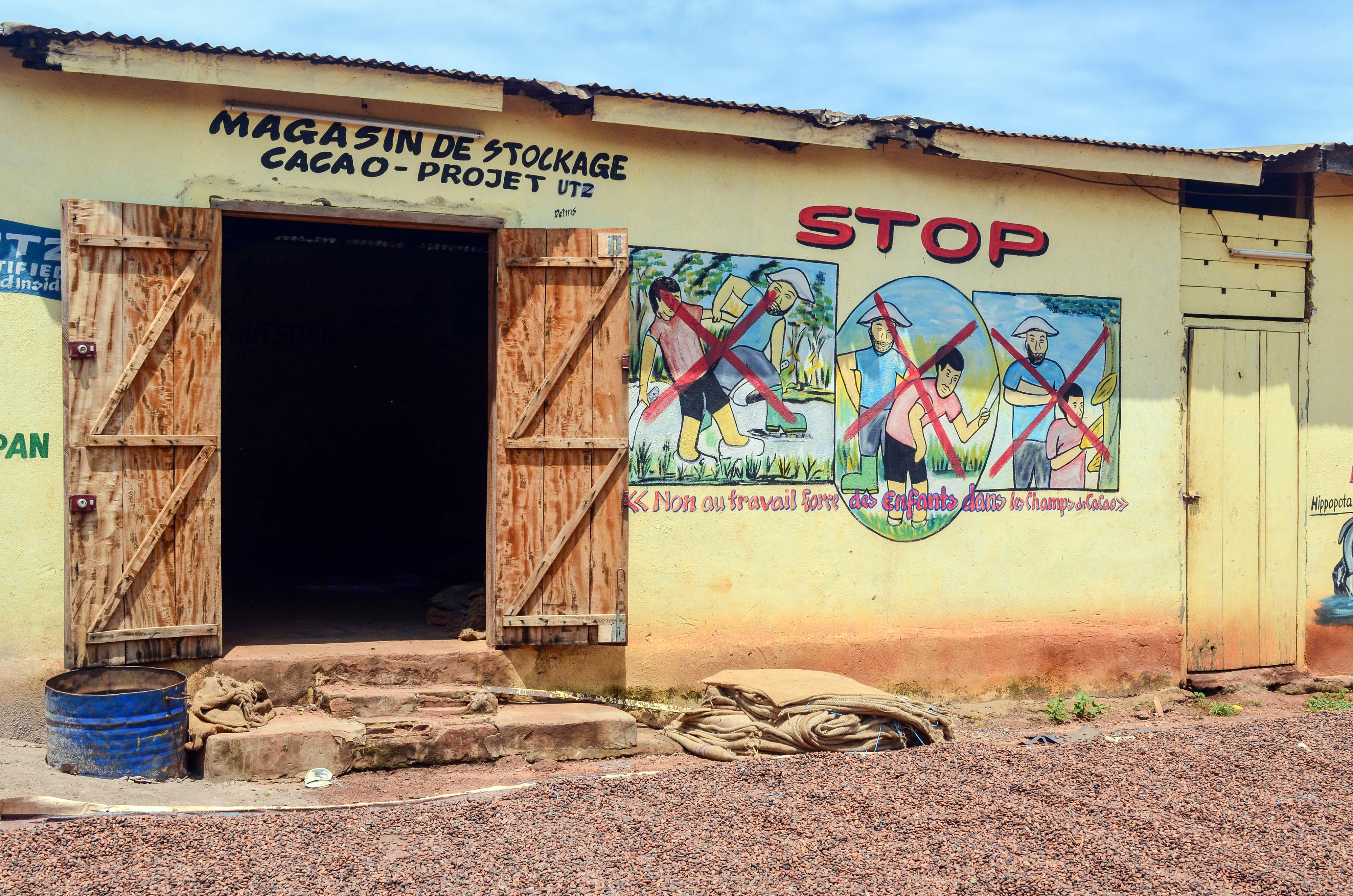Economic situation The role of cocoa in the economy
Warehouse building of a cocoa cooperative in Côte d'Ivoire
Cocoa cultivation is the source of livelihood for about one fifth of the population. Although the government has set a fixed price for cocoa, the strong influence exerted by corporate interests and the lack of political oversight mean that farmers rarely see all of that money. As a result, many of them live below the poverty line.
In addition, only a small proportion of the cocoa harvested in Côte d'Ivoire is also processed there, so that the country misses out on a large part of the added value. According to World Bank data, Côte d'Ivoire produces about 40 per cent of all cocoa worldwide but only receives five to seven per cent of the profits, as they are mainly generated in processing and marketing.
An improving business climate
In the period from 2015 to 2019, Côte d'Ivoire's economy grew by an average of nearly seven per cent. The economy has also proven to be relatively resilient during the COVID-19 pandemic. Unlike other countries, Côte d'Ivoire did not experience a recession (the growth rate in 2020 was +1.7 per cent). In 2021 and 2022, gross domestic product rose by 7 and 6.7 per cent, respectively. The International Monetary Fund (IMF) expects that growth rates will remain above six per cent in the coming years.
The government's goal is to further develop the country through industrialisation and private sector development. Both the government and international providers of capital are making large-scale investments in infrastructure and in value chain development. Development constraints that continue to exist are inefficient government institutions, corruption and nepotism, and the continuing political power struggle.
Environmental situation
Côte d’Ivoire’s economic success is based on constant expansion of the land used for agriculture – at the expense of forests and biodiversity. In the period from 1990 to 2020 alone, the forest area declined by nearly two thirds. Studies have shown that about 60 per cent of forest loss is caused by the expansion of agricultural land. About 30 per cent of the cocoa grown is planted illegally in protected forests.
In 2017, the most important companies operating in the cocoa and chocolate industries launched the Cacao et forêt (External link) (cocoa and forest) initiative. The initiative aims to put an end to cocoa being grown on protected forest land in Côte d'Ivoire and Ghana.
A new forest law was adopted in Côte d'Ivoire in 2019. It provides for officially allowing agro-industrial utilisation of those forest areas that have already been largely destroyed, while providing better protection for those protected areas that are still intact. Through reforestation efforts, the government wants to increase the area of forest in Côte d'Ivoire by 2045 from its current share of 9 per cent to at least 20 per cent of the country's total area.
As at: 27/03/2024
